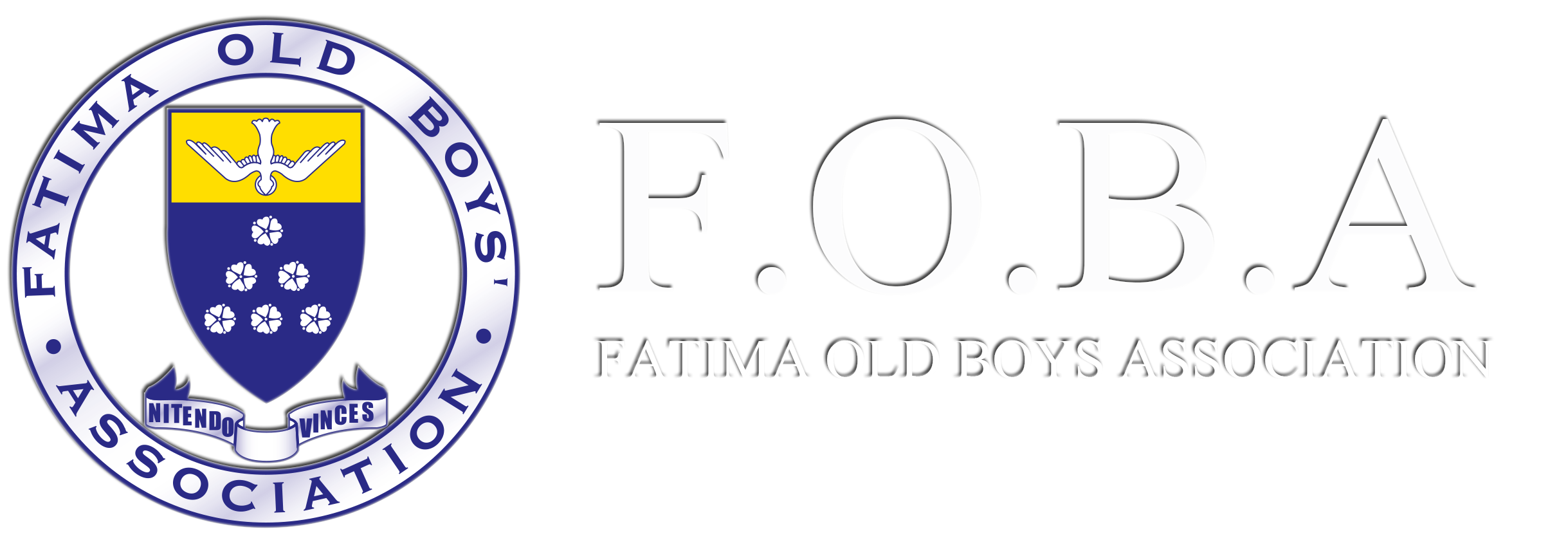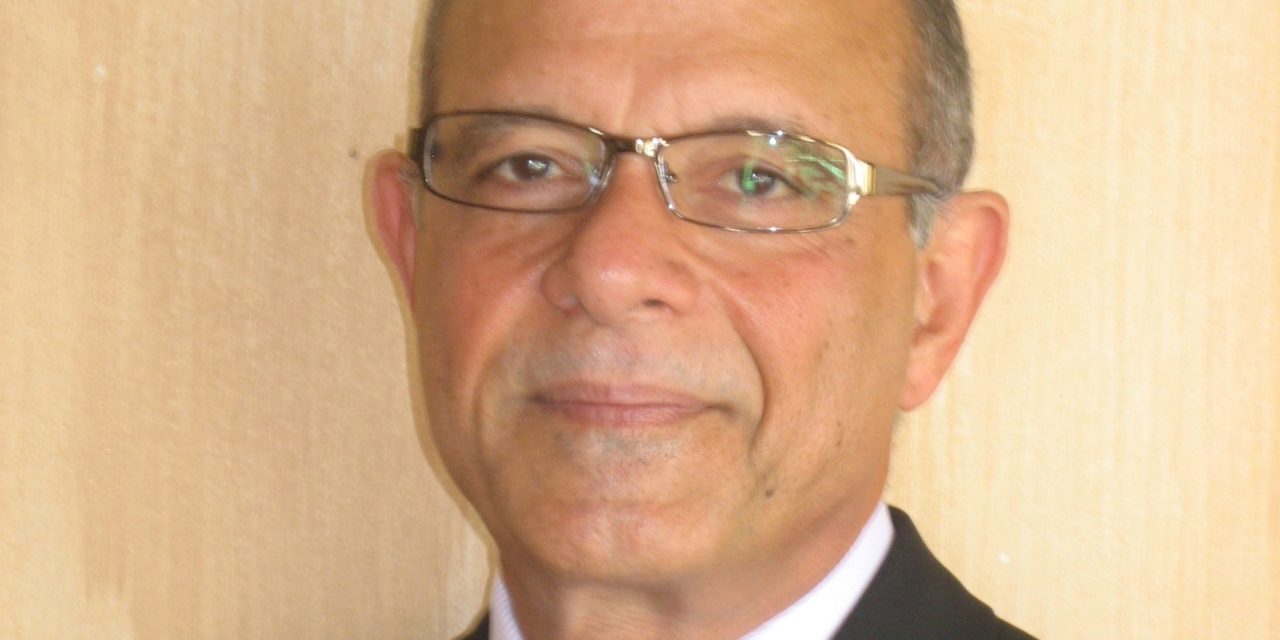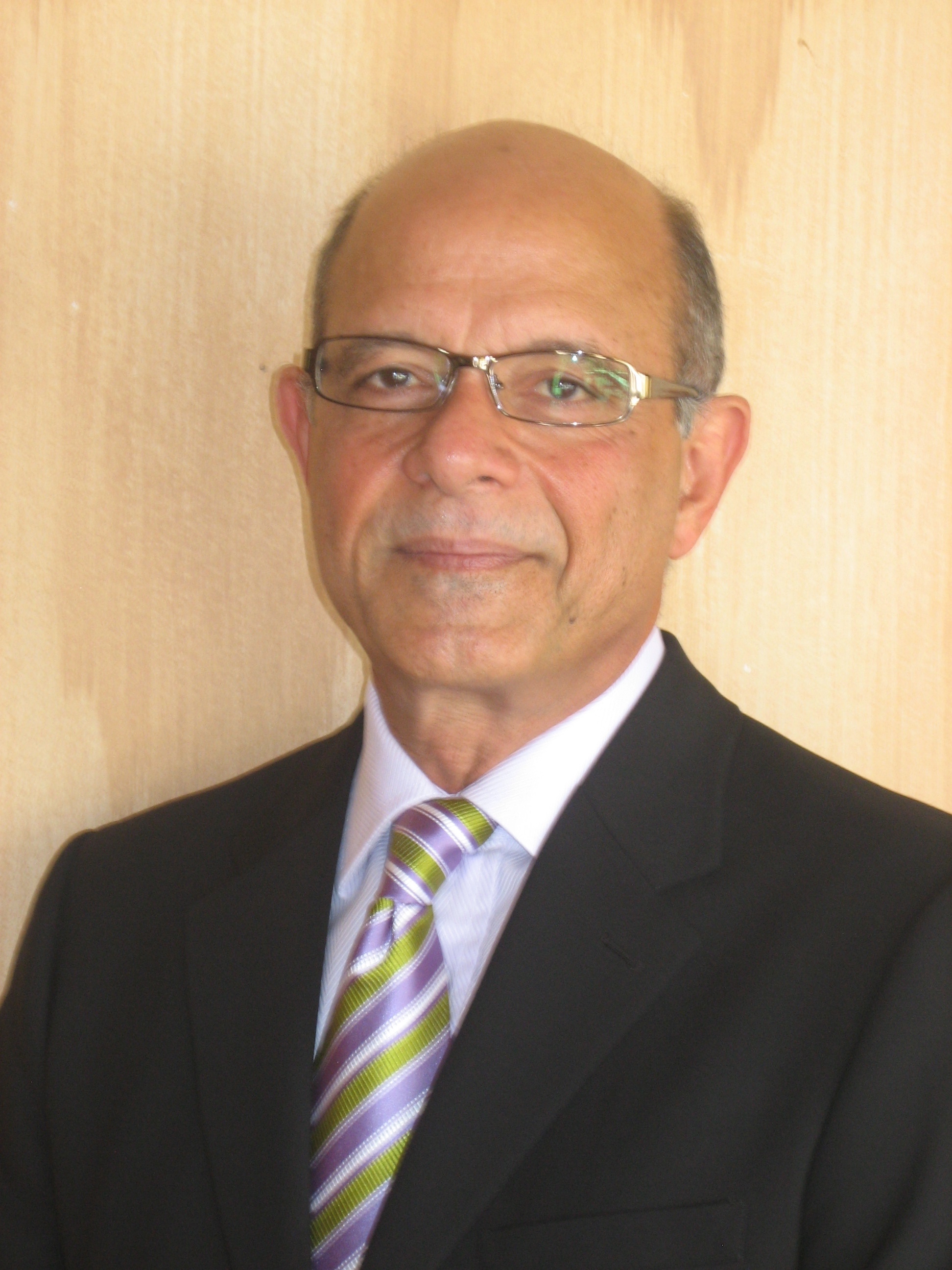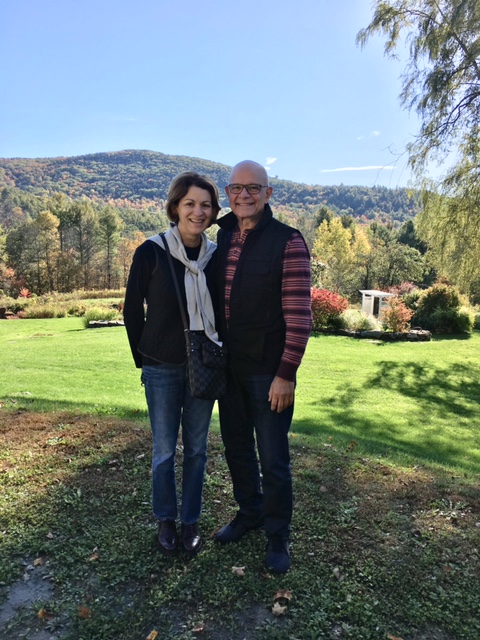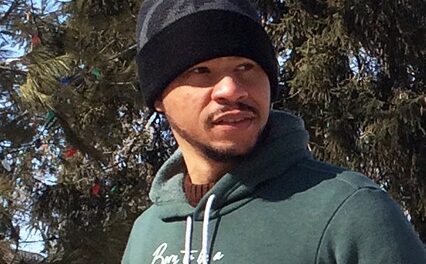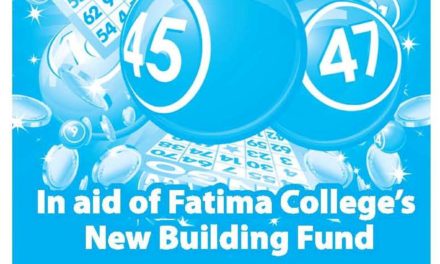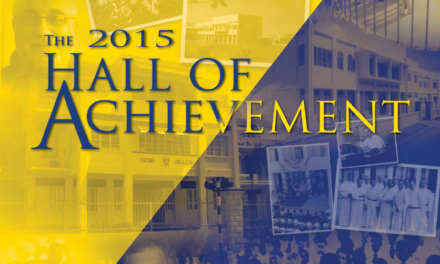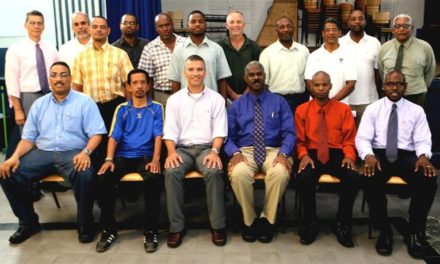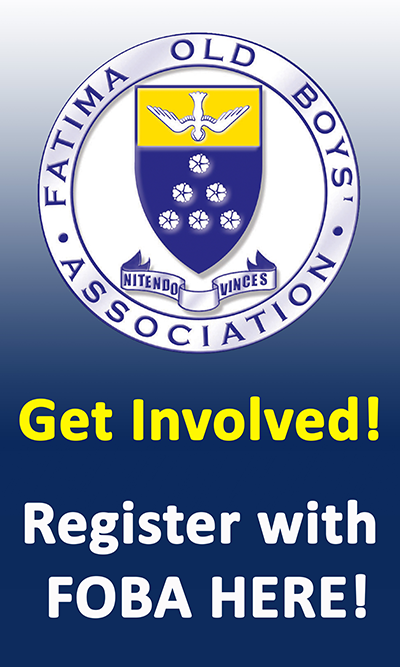- Views 3059
- Likes
Interviewer: Stefan Roach
His more scholarly colleagues would happily say: Ecame, Esau, and Econquered…that being the most apt description of Joseph P. Esau.
Joe, as Fatima’s version of Julius Caesar, battled his way from ‘behind the Bridge’ to London Bridge—East Dry River through Nelson Street Boys, to Rosary Boys, to Fatima College (1960-1964), then Pannell Fitzpatrick Chartered Accountants’ offices in the British capital.
Back in Trinidad two years later, he handled a range of notable clients, served on public and private sector Boards, and made his especial mark with the groundbreaking Revitalization Plan which turned an ailing McEnearney Alstons Group into a still-continuing robust Ansa McAl Group.
Today, his own ‘self-rescue’ and relaxation range between family and fishing…as even Caesar deserves a rest.
Q: Describe the population of the school in your time.
A: To start with, Fatima was not the top choice. The top choices were Saint Mary’s then QRC. We were a relatively smaller school aspiring to get up to the level of distinction in everything, including Cricket and Football. I think the population may have been 400. It was denominational and truly represented Trinidad and Tobago. Although it was Catholic, I remember there being a fair number of Muslims and Hindus.
Q: Where did you grow up?
A: East POS, Queen Street, now double-renamed after Queen Janelle Commissiong. I was born there and lived there for the first 18 years of my life. I’m now 70 going on 71. Things were very different back then. It was a strong community, although poor to lower middle class, as people looked out for one another. I was disciplined many times by neighbours. I grew up humble but was never aware of lacking anything. We always had enough to be contented. My dad rode a bicycle and I remember when he got his first car, a second-hand one when I was about 6 years old. I remember getting our first ’fridge and years later getting our first television.
Q: What extra-curricular activities did you participate in at Fatima?
A: It was casual. I played a bit of Cricket and Football but never rose to represent the school teams.
Q: Have you maintained your friendships from school?
A: Some…not as closely as it could be but I still have kept a few. Friendships never die. I certainly have a lot of acquaintances that I meet, and we have camaraderie but few friendships, possibly because of how our personal lives and careers evolved. However, the feelings we have for one another are definitely Fatima-strong.
Q: Who taught you accounts and business subjects?
A: My activities in business as an academic pursuit really arose after school. In Fatima, we had a subject called Commerce, which was superficially done for one or two years before the Cambridge exam. After I left school I did a UWI extra-mural course in Economics for a while. Commerce may have sparked an interest. I then decided to try accounting, and landed a job as an audit trainee at Pannell Fitzpatrick, now EY, worked and studied, and qualified while I was seconded to the firm’s London office.
Q: What aspects of Fatima life best prepared you for the working world?
A: The camaraderie, the grounding we got for a real-world experience, the values that we acquired, no matter your religion. The combination of lay-teachers and priests created a favourable environment for development of good values for the student.
Students represented every sector of Trinidad and Tobago and we mixed and shared everything. Night study was also a good experience. It was a disciplined environment where students came out to truly study, which helped a great deal. We had limes before and after night studies.
Q: Is it true that the accountant is the backbone of any company?
A: I wouldn’t go so far. Instead of specifying one discipline, I would say it’s the leadership and tone that is set from the top, which starts with the Chief Executive. What I can say is that an accounting career prepares one for higher levels of management if one is so inclined.
Q: You are well known for turning around McAL in the late 80s. In a nutshell, describe your Revitalization Plan against the backdrop of the economy at the time.
A: The economy was in more dire straits at that time, compared to now. We are probably now heading in that direction if corrective measures are not taken. We were in the heights of a depression, not recession…an eight to 10-year depression. But difficult times are also times of opportunity.
The plan was very basic. There were two failed takeover bids in 1986, one from the ABIL group, and the other from the Angostura group which was really a combined Angostura/Neal and Massy collaboration. McAl was in a state of collapse with its shares being traded at around sixty cents, where the receivers were already in the motor vehicle businesses; the assembly plant and car dealerships. The Group was about to be broken up and I saw that as an opportunity.
As luck would have it, I was assisting at the New Life Ministries, a drug rehabilitation programme, where I met Conrad O’Brien who was the CEO of McAL at the time. During our chats, the opportunity arose to put together a plan, which I did. Fundamentally, the plan involved recapitalization which would put new money into the Group to strengthen it, rather than buying out existing shareholders which the failed bids involved. Interestingly, the McAL Board told me that they would pursue the plan if I came in as Finance Director. Also of interest is that before my plan was presented to and accepted by the ANSA Group, it was turned down by two other major businesses.
Once I started working with the group, within six months I became the CEO. The first step was recapitalization and the second step was to ensure the senior positions within the group were held by the right people. Special attention was given to the Carib Brewery (which was quickly losing its market leadership position to Stag), and to the vehicle assembly plant. The brewery was at negative cash flow and I ran it for about six months while also being Group CEO. One of the early actions was to reduce the price of beer. This resulted in an explosion in demand, turned around the business and brought Stag/National Brewing to the negotiating table.
I believe it was luck that led me to meet Roland Amar, whom I contracted to restart the
Union-blockaded vehicle assemble plant. This was essential as we had about $100 million worth of vehicle CKD kits that we absolutely had to monetize for the Plan to work. The inherited McAl plan was to assemble the vehicles at the Neal & Massy plant at exorbitant assembly charges.
Q: Briefly tell us about the situation leading up to the purchase of the National Brewing Company (Stag) by McAL.
A: Carib was very badly managed. The traditional leadership was arrogant—they thought that the brand was invincible. Dennis Ramdeen, a Fatima Old Boy and friend, was the head of marketing at Stag and was cutting our tail. Carib was close to losing majority market share, from a position of dominance a couple of years earlier.
I had earlier hired Tim Nafziger, now deceased, to fast track the computerization of the McAl group, and decided against much resistance to appoint him as CEO of Carib. We engaged in some very dynamic marketing activities, some of which are not in the public domain. For example, we had a fabulous hospitality lounge facility that was used by executives to entertain their business associates and friends. I changed that dynamic and decided that there should be no more white-collar people there. Instead, we used it for internal activities, and had bar owners as our luncheon guests twice weekly, to rebuild lost partnership with these vital customers, and to gather market intelligence! So the marketing went far beyond just advertising and promotion, it got to the root and the guts of the customer base.
One strategy was to reduce the retail price of Carib to $1.99. After you back out VAT, excise tax and the distributor’s and retailer’s margins along the chain, we were in fact selling a beer for around 70 cents. We were actually able to turn this into a profit because of the greatly expanded volumes. And production efficiencies improved dramatically.
We also had to change the culture of the Company. I remember calling an assembly of all the employees at the factory, and this was in fact the first time that most of them ever met the person running the Company. It was a session that lasted around three hours, but by the end of it, we had the commitment from the team for continuous feedback to help turn the Carib brand and company around.
Once we regained market share and restored profitability, it was critical to have only one local brewing company as the market was too small for two sustainable operators. I initiated discussions in Amsterdam with Heineken for the acquisition of National Brewing, and concluded an acquisition and partnership agreement in which Heineken owned 20% of the combined brewery.
Q: Do you think that your “rootsy” upbringing helped with being able to relate with people at all levels of society?
A: I think that was critical in every aspect of my life. In fact, I credit everything positive in my life to my upbringing and early environment—the values acquired, and my ability to read people and situations. Call it street-smarts.
Q: You contributed to the Victor E. Mouttet Group in its acquisition of Prestige Holdings Ltd (PHL) in 1997 and led the Company to a successful public share offering in 1999. Today PHL’s brands include KFC, Pizza Hut, TGI Fridays, Subway and Starbucks. Other brands you assisted another partnership in bringing to T&T include PriceSmart, Payless and Marriott. Against the backdrop of today’s economy and with issues such as the shortage of USD, how does maintaining these multinational brands benefit our country?
A: Let me use PriceSmart as an example. When it was brought to Trinidad, part of the initial financing came from the IFC. The basis on which the IFC provided financing for that project was their recognition that it would stimulate and improve the retail and distributive sectors’ efficiency. That meant the improved efficiency would result in better value for the country, and living standards. PriceSmart does not import anything that otherwise would not be imported; they haven’t put any local manufacturer out of business. It has created an extremely efficient mechanism for bringing value to the customer through quality products at reduced prices. They have forced margins and prices down and have caused competitors to improve their services to the customer.
The service in the Supermarket sector was something completely different before PriceSmart. The Supermarkets Association took an official stance opposing the entry of PriceSmart into the market, so much so that Victor E Mouttet Limited which was an initial investor, was being boycotted by supermarkets and eventually had to pull out as a partner in PriceSmart.
T&T-manufactured products are not only supplied to the four local stores, but are exported to other PriceSmart markets in the Caribbean and Latin America; and there is a new focus to support local industry.
The sustainability of PriceSmart is assured as long as they continue to bring value to their members. There are challenges with regards to the allocation of foreign exchange, but the reality is that the population is the consumer of that foreign exchange. If PriceSmart wasn’t here, we would be consuming more foreign exchange for the same volume of goods. Therefore, the claim that these foreign entities are hurting the economy is a lot of nonsense. Look at the overall value and service they bring to the population. If you go to the thousands of small shops/parlours in Trinidad and Tobago, you would find that they are resellers of goods purchased from PriceSmart at lower prices. Unfortunately, nationalism is confused with self-interest.
With regard to the restaurant industry, let’s use KFC as an example. Before I went in as Chairman of Prestige, the poultry processing industry was at the point of bankruptcy. The KFC management used to negotiate prices weekly with the local chicken processors. One of the first things we did was to negotiate with Arawak, a contract that would bring stability to their business. I say without reservation that the poultry industry in Trinidad is strong today because of Prestige Holdings and KFC as the largest purchaser of chicken.
The five brands that Prestige Holdings operates have raised the standards of service and product quality in the restaurant industry in Trinidad and Tobago.
Marriott was the first decent hotel to be built in Trinidad since the Hilton about 40 years earlier, and at a time when the economy was moribund.
Payless Shoes brought style, variety and tremendous value to the local mass market, and I am convinced that more foreign exchange would be used had Payless not been here. People are not wearing more imported shoes because of Payless’s presence.
Q: Was your role as the executive chairman of BWIA your toughest State assignment?
A: Yes. I’ve served on many State boards under several governments, but BWIA was the only one where I had a substantive leadership role. The culture was extremely difficult. The most challenging part of this assignment was that BWIA had to be privatized or closed, as the losses were unsustainable. We had to get rid of around 800 jobs, and there was not a family without a close relative or friend that hadn’t been touched by the BWIA crisis. But the Government had drawn the line as the country could no longer afford to carry the losses. During my time at BWIA, the Treasury couldn’t provide any funding, and so all of the tough actions were taken out of absolute necessity.
I think that the State Enterprise sector is extremely unproductive, and costly to the population. Governments have no business in business.
Q: Why, up to today, we still can’t seem to profitably operate our airline?
A: No State airline has ever operated profitably. This is a fact. Sometimes it might be profitable for a period, but never sustainably. It is a very capital intensive, efficient industry in which the operators are cut-throat competitors.
Q: List three adjectives that best describe you in the boardroom.
A: I try to be well-prepared and informed for deliberation. This one may be a weakness or a strength, but I am tenacious when I believe an action is required, and perhaps a bit too determined to sell it to my colleagues; but at the same time I am open to challenge.
I think by nature, I am a contrarian…I tend to look at the alternative rather than the obvious.
Q: If you were Finance Minister today, what would you emphasize for the recovery of our economy?
A: That’s difficult because I don’t have the information that the Finance Minister has. I would suggest: doing a better job at selling to the population that it is not doom and gloom, but that serious adjustments are required for us to become competitive and self-sustaining.
I think we have wasted almost two years in making the hard decisions that are inevitable. There is no likelihood of things going back to where they were. Global oil and gas consumption would not increase much, given improved efficiency and renewables. The high gas prices from five years ago were mainly due to the nuclear meltdown in Japan and the resulting closure of nuclear facilities. That is all changed now.
I believe that with good leadership and management, we should be reasonably comfortable as a Nation going forward. Over the next two years, energy prices may recover somewhat, but they would not return to the highs of 2014. We should therefore reduce waste. We cannot continue with this recurrent deficit budget of $10 billion, and the best time for action is while we have resources to manage the adjustment. We must become more efficient, which means seriously cutting unproductive State expenditures.
We also need to adjust the exchange rate to a level where there is closer balance in the supply/demand, and where it can be defended by the Central Bank. If you adjust the exchange rate to the required level, you do two things:
- You would dampen consumption of imported goods, and demand for foreign exchange would fall
- The black market would weaken as confidence in the Central Bank is restored. The reality is that the treasury and Central Bank are currently subsidizing the foreign exchange rate, and the average citizen knows it too well; many are queuing at the banks to purchase US dollars, as they know it will cost more in the near future.
I also find it ridiculous that illegal immigrants are coming here and are in jobs that locals refuse to do. Imagine, we are in an economic crisis and there are restaurants operated by Prestige that cannot open on time, and which are operated at reduced staffing because of staff shortages and absenteeism. Part of the problem is the government ‘make-work’ programmes. People have become accustomed to being paid for doing less than a day’s work. I’m not saying that there should not be social programmes for the needy, but there are too many people riding on the backs of the State who don’t need it.
There are people who are drawing State pensions who wouldn’t qualify under appropriate means tests. I built my home 42 years ago, and paid the same land and building taxes until 2009 when it was abolished!
We have been spoon-fed by successive governments over the past 25 years, and the reduction of subsidies and wasteful State programmes is an urgent imperative if we are to avoid a crisis that resembles that of the eighties.
Q: Today we see how many traditional so-called ‘prestigious’ fields of study are now becoming overcrowded and lacking jobs, such as law, medicine and engineering. Do you think that Accounting will always be a safe career path?
A: No, I think it is cyclical but the cycles are not that dramatic. One good thing about Accounting is that one does not have to stay in Accounting. There are options for branching out, for example into Marketing and other business disciplines. There are lots of CEOs today who are accountants. It depends on the individual’s personality and inclination.
Q: In today’s economy, is it better to be a ‘Jack of all trades’ or a ‘Master of one’?
A: Certainly not a ‘Master of one’ but you must be a master of many. We are in the era of the technology revolution, and the days of a single career are over.
Q: Briefly tell us about your family.
A: I have 4 grandchildren…3 from my son and 1 from my stepson. I get to see them regularly and I would say we have a very happy family life.
Q: Having served, on numerous State Boards, how were you able to steer clear of the political bacchanal?
A: I wouldn’t say I was necessarily able to steer clear of it. My tenures on the Boards of TELCO and BWIA were during very difficult economic and controversial periods, and the tough actions were frequently in the press; there was even a calypso titled “TELCO POOPS”. I was able to steer clear of being tarnished because I always had a clear sense of what was the right thing and stuck with it, and that gives you protection. If you stick with what is the right position, then you cannot be harmed. It will be an embarrassment to a politician to go after you if you stick to the right course. They can only go after you if you are off the rails.
Q: How are you spending your retirement?
A: Still not fully retired…I spend a couple hours a day working at home from where I have operated for the last twenty plus years. Usually, my wife and I would have breakfast, lunch, tea and dinner together, so we are very close. And I travel for about eight Board meetings annually.
Q: What stands today on the National landscape as your proudest legacy?
A: I am proud of being one of the founding Directors of Arthur Lok Jack Graduate School of Business, at present the only surviving one! The strength and success of McAL today also; due largely to the plan which I developed and executed in the late 80’s for it’s survival and growth.
Q: What did it mean to you being inducted into the Fatima Hall of Achievement?
A: That was a crowning achievement. I consider it really an honour.
Q: What can we do differently in schools such as Fatima College to ensure that the country’s next generation of leaders are better than today’s?
A: I am not aware of the curriculum but it must be designed and executed for the new economy. Good values should be emphasized as that is our single biggest challenge in all sectors and institutions in the country. We should also become very strong in sensitizing the youngsters and developing their ability to grasp opportunities in the world of technology, which is now in another revolutionary state.
Q: “Do what you love and never work a day in your life.” Is this statement true?
A: No…do what you love certainly, but it should also give you mental stimulation- otherwise it could become boring. I think the statement is right in that doing what you love is not drudgery, however it is work. Certainly don’t do it if you don’t love it.
Q: Students at a Form 3 level are often confused as to what subjects to choose. What would be your advice to these young students in making these early decisions meant to influence their future career path?
A: I would look into the subjects that fit their intended career-stream. Look into what Universities require, particularly in the sciences. I also believe the days of one career are gone. Technology must be part of what you are doing, so you should certainly ensure that there is opportunity for working with technology, regardless of the intended career-path.
Q: Any closing remarks.
A: I want to continue to be proud of the products that Fatima churns out for this country and beyond. I’ve always noticed distinction from Fatima graduates in my world, and I would like to see that continue to prosper.
